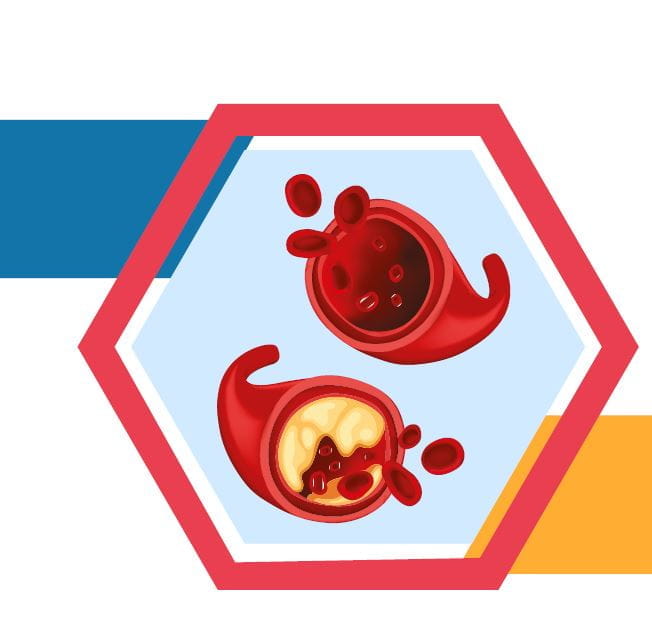Speakers: Dr. Anne Marie Navarre, Dr. Keith Ferdinand, Dr. Roger Blumenthal, and Dr. Neha Padigapati.
Key Highlights
A series of challenging and clinically relevant scenarios in preventive cardiology were tackled during the expert panel discussion at ACC 2025, with practice-changing insights on lipid management, blood pressure treatment, dietary counseling, and the role of over-the-counter supplements being offered. Through nuanced case discussions and data-driven responses, the panelists provided strategies to guide risk stratification and treatment in primary prevention settings.
High Coronary Calcium Score (CAC) in Asymptomatic Individuals
A high CAC score (>1000) is indicative of advanced atherosclerosis and should be managed as a secondary prevention equivalent, similar to patients with diagnosed coronary artery disease (CAD). Key considerations include:
-
Statin Therapy: High-intensity statins (atorvastatin 40–80 mg or rosuvastatin 20–40 mg) are recommended. Given the potential for muscle side effects in endurance athletes, a lower statin dose combined with ezetimibe may be considered as an alternative.
-
Family History & Risk Factors: Screening for genetic predispositions, elevated lipoprotein(a) [Lp(a)], or other risk enhancers is considered crucial.
-
Imaging & Diagnostic Testing:
-
Stress Testing: Exercise echocardiography may be considered for reassurance or if exertional symptoms develop.
-
Coronary CTA: Not recommended due to concerns about blooming artifact and radiation exposure.
-
Invasive Angiography: Not indicated in asymptomatic patients.
-
Lifestyle Modifications: A Mediterranean diet is emphasized, along with smoking cessation and the control of blood pressure and glucose levels.
Biomarkers in Primary Prevention
Cardiovascular risk stratification can be refined through the use of biomarkers, particularly in patients with borderline lipid levels or other risk factors.
|
Biomarker |
Recommendation |
Key Considerations |
|
Lipoprotein(a) [Lp(a)] |
Universal screening is advised once per lifetime. |
Elevated levels (>125 nmol/L) justify intensified LDL lowering. Emerging therapies (pelacarsen, olpasiran) in late-stage trials (HORIZON, OCEAN(a), Acclaim-LPA) may influence treatment by 2026–2027. |
|
Apolipoprotein B (ApoB) vs. LDL-C |
ApoB is recognized as a more accurate measure of atherogenic particle count. |
Not universally reimbursed. Ongoing debate on whether ApoB should replace LDL-C as the primary metric. |
|
High-Sensitivity C-Reactive Protein (hsCRP) |
Considered useful in intermediate-risk patients. |
Acts as a "tiebreaker" when inflammation is suspected. |
-
Clinical Implications: In young individuals with low calculated risk (e.g., PREVENT score), emphasis is placed on lifestyle modifications, with selective biomarker testing being recommended.
Blood Pressure Management in Low-Risk Individuals
For patients with mild hypertension but low overall ASCVD risk, a stepwise approach is recommended:
-
Lifestyle First: The DASH diet, sodium reduction, and home blood pressure monitoring are encouraged to identify white coat or masked hypertension.
-
Pharmacotherapy Thresholds:
-
BP >140/90 mmHg: Treatment should be initiated per guidelines.
-
BP 130–139/80–89 mmHg: An individualized approach is taken; if no improvement is seen after 3–6 months, low-dose combination therapy (e.g., ACE inhibitor + calcium channel blocker or thiazide) may be considered.
-
Racial Considerations: A one-size-fits-all recommendation is avoided; combination therapy is often preferred for Black patients due to demonstrated efficacy.
-
Target Blood Pressure: An ideal goal of <130/80 mmHg is recommended, particularly in patients with additional risk factors such as diabetes or high CAC/Lp(a).
Supplements and Dietary Trends in Cardiovascular Prevention
Over-the-counter fish oil, vitamin D, and other common supplements have not been proven to provide cardiovascular benefits. Prescription-grade omega-3s (e.g., icosapent ethyl) may be beneficial for high-risk patients with elevated triglycerides. Ketogenic diets are not recommended for cardiovascular prevention due to the potential for extreme LDL and ApoB elevations (e.g., LDL >400 mg/dL in some cases). A Mediterranean or low-carb Mediterranean diet with whole foods is preferred. Frozen vegetables and meats are recognized as cost-effective alternatives for maintaining a healthy diet.
Key Controversies and Emerging Topics
Aspirin Use in High CAC Patients
-
For CAC ≥100, aspirin is favored if the bleeding risk is low (NNT < NNH).
-
For CAC ≥300, a stronger rationale for aspirin use is present, though no randomized controlled trial (RCT) data exist. Alternate-day dosing may be considered to reduce gastrointestinal bleeding risk.
Serial CAC Scoring
-
Repeat assessment is not recommended; instead, focus should be placed on aggressive LDL/ApoB reduction and plaque stabilization.
Potassium for Blood Pressure Control
-
Blood pressure can be lowered through potassium-rich diets or potassium chloride-substituted salt.
-
Potassium supplementation should be avoided in patients with chronic kidney disease (CKD) stage 3B or higher.
Upcoming Lp(a) Therapies
-
Insights into Lp(a) lowering for secondary prevention are expected from the HORIZON trial (pelacarsen) in 2026.
-
Universal Lp(a) screening is encouraged so that patients who may benefit from future therapies can be identified.
Final Takeaways
-
Very high risk is signified by high CAC (>1000): Aggressive treatment with statins, lifestyle modifications, and stress testing if symptoms develop is required.
-
Selective use of biomarkers is recommended: Lp(a) screening should be performed universally; ApoB is considered superior to LDL-C when accessible; hsCRP is used to assess inflammation.
-
Blood pressure management: Home monitoring is considered essential; treatment should be initiated at >140/90 mmHg, with combination therapy preferred in Black patients.
-
Dietary recommendations: Ketogenic diets should be avoided, and Mediterranean-style eating patterns should be emphasized.
-
Supplements: Over-the-counter options have not been proven beneficial; evidence-based medications should be prioritized.
ACC.25, March 29 - 31, 2025, Chicago




